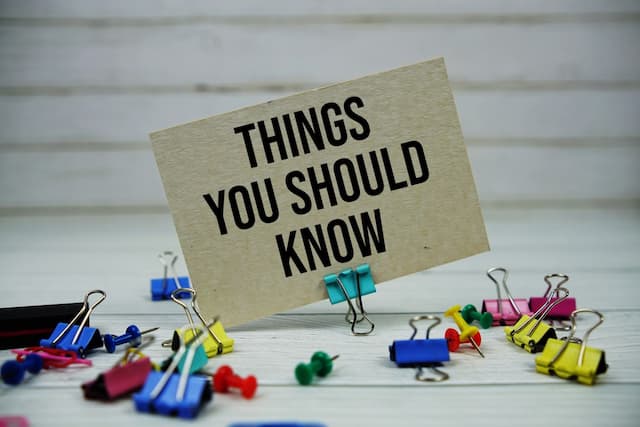Buck up, Buttercup: On Running With Horses & Our Non-Coddling God

If you have raced with men on foot and they have worn you out, how can you compete with horses?
Jeremiah 12:5a
Our culture is getting so soft. No one can handle criticism. People just wilt. I can’t tell you how many times that gist has come up in conversation lately.
I’m no expert on culture. So correct me Mom and Dad if you think I’m wrong: You weren’t much for coddling. And correct me sons if you think I lie: I’m not much for coddling.
Which is probably just fine. Here’s why.
I Thought I’d Be Wrecked
No bright pink line. Another stinging sign of my empty womb. I thought I’d be wrecked at the next fruitless month. Little did I know there would be more than two hundred empty months (and nine full months) ahead. But here I am. I’m not wrecked.
I was looking for dirty socks under his bed. But there it was, my clue that something was off. I thought I’d be wrecked if we didn’t fix this now. But the rascally habit grew. It got more entrenched and bore bitter fruit. But here I am. I’m not wrecked.
They walked out of our house in silence. We’d have to meet again and try again to patch things up. I thought I’d be wrecked by year’s end if we couldn’t mend. But it would be ten long years before hugs. But here I am. I’m not wrecked.
If anything I’m stronger. Because sufficient grace kept flowing as all those ruins fell.
God gave compassion and comfort and care. But there was not coddling.
Warm Mush & Helicopter Moms
So what is coddling?
To coddle means to overprotect. Not to protect, but to overprotect. As in helicopter mom. As in Ashley and her twelve year-old daughter Lacy, A girl was mean to Lacy at lunch, so I called her teacher and messaged the girl’s mom. As in, It’s 50 degrees so wear your hat and mittens and coat, Lacy, or you can’t go outside.
But I know many of you enjoy word study and a few love Latin. So here’s the quick etymology of coddling:
Coddle is probably a dialect variant of obsolete caudle: ‘administer invalids’ gruel’, based on Latin caldum: ‘hot drink’, from calidus: ‘warm’.
Oxford Languages
God protects us. It’s what my friend Kat calls life under the wing. She’s right. When God is our refuge, no evil will befall us.
But that doesn’t mean he spares us grief, trouble and pain. While God is absolutely compassionate and merciful and comforts us in our sorrows (2 Corinthians 1:3-4), our Heavenly Father does not coddle his children.
He doesn’t overprotect us or spoon feed his adult children mush. God wants us to grow up (Ephesians 4:13, Colossians 1:28). But solid food is for the mature.
Anti-fragile: Children Prepared For The Road
I probably wouldn’t have had coddling on my mind if our book club hadn’t just read The Coddling of the American Mind. In it, Greg Lukianoff and Jonathan Haidt take on some great cultural “untruths,” like human fragility: the untruth that what doesn’t kill us makes us weaker. The truth, they say, is that humans are anti-fragile.
While that is true now and then—the greater truth is that human beings need physical and mental challenges or we decline. Stress actually makes us stronger, not weaker. For example, muscles and joints need stressors to develop properly. Without stress, our muscles to atrophy, our joints to lose range of motion, our heart and lung function to decline, and blood clots may form.
This is not mere resilience as when when we bounce back from a fall like a rubber ball. It’s more. Anti-fragile means we actually get stronger, we move past baseline, because of the stress.
The foolishness of overprotection is clear as soon as you understand the concept of anti-fragility, Lukianoff and Haidt explain. Given that risks and stressors are natural, unavoidable parts of life, parents and teachers should be helping kids develop their innate abilities to grow and learn from such experiences. There’s an old saying: “Prepare the child for the road, not the road for the child.”
In other words, the trials you’re facing now will prepare you for bigger ones later. Running against men will get you ready to race horses.
Not the Exception, the Rule
Time to explain the horses. A little background might help.
I’ve been reading Jeremiah lately. It strikes me again that God doesn’t coddle his children. He doesn’t overprotect the ones he loves. Rather, he prepares them for the rocky road ahead with smaller bumps now.
The more I read the Bible the more I see this not as the exception, but as the rule. Job and Jeremiah and Elijah and Paul and 11 of 12 apostles who died martyrs deaths prove it. Recall Jesus’ words to Peter, What is it to you? You follow me. God often turns up the heat before he turns it down. He prepares his children for the road.
Here’s what I mean, spotlight on Jeremiah. As chapter 12 opens, the weeping prophet takes God to task.
You are always righteous, Lord,
when I bring a case before you.
Yet I would speak with you about your justice:
Why does the way of the wicked prosper?
Why do all the faithless live at ease?
We get that, don’t we? How many of us would have a word with the Lord about his justice? Why is it bad guys thrive and honest, decent folks barely survive?
While it is grand to pour out our hearts to God, it doesn’t guarantee that we’ll like his reply. When Jeremiah inquires about the mistreatment he’s receiving in his own hometown (see 12:6), from his own brothers, God gives a shocking response.
You Ain’t Seen Nothin’ Yet
So what is God’s answer to Jeremiah‘s questions? God comes back with a couple questions of his own:
If you have raced with men on foot, and they have wearied you, how will you compete with horses? And if in a safe land you are so trusting, what will you do in the thicket of the Jordan?
Jeremiah 12:5
You ain’t seen nothin’ yet. It’s as if God takes Jeremiah down to a track meet and has him run the 400 meter, the 800 meter and the mile. Then, as he stands doubled over in the infield, God asks, Jeremiah, you all set to race in the derby? You’re in lane five, against Secretariat.
The second question is like asking, If you fall down in the Great Plains how are you ever going to make it over the Rocky Mountains? Things will get worse before they get better. If the hometown crowd is mean to you, get ready for the toughies in Jerusalem.
Buck up, Buttercup. How will you compete with horses?
Prepared For The Road Ahead
In a message on Jeremiah 11-12, Phil Ryken says, God did have great things in store for Jeremiah, but he could never achieve them unless he was willing to persevere in little things. There were greater challenges to come.
By analogy, Jeremiah could expect to run against horses in the future. He needed to learn how to trust God and to draw on His strength in his present challenge, in order to prepare him for the greater challenges in the future.
If Jeremiah was foundering at his mild mistreatment in Anathoth, how would he fare in big-hostile Jerusalem? Before long, he would be locked in stocks (Jeremiah 20:1-3), thrown into a muddy cistern (Jeremiah 38:6), and imprisoned in the court of the guard (Jeremiah 28:13). The troubles he was having in Anathoth, Ryken says, were nothing compared to the troubles he would have later in Jerusalem, Babylon, or Egypt.
“In order to our preparation for further and greater trials, we are concerned to approve ourselves well in present smaller trials, to keep up our spirits, keep hold of the promise, with our eye upon the prize, so run that we may obtain it.”
That is 17th-century Bible teacher, Matthew Henry’s take on Jeremiah 12:5 and our non-coddling God. Our non-coddling, deeply-compassionate God who lovingly trains us for more difficult roads ahead.
Our Strength
So where’s the good news in this, Abigail? Good question.
Jeremiah never saw the hard road coming. But I want us to see it. I want you to learn what it’s taking me so long to learn. In the decades since that first negative pregnancy test and that wrapper under the bed and those hug-less years, I’m learning to feel God’s love in the trials, to know his purpose, that the Lord is compassionate and merciful (see James 5:11).
But believing that takes frequent reminders. Reminders about running with horses. Reminders that God is a loving Father but not a coddling grandfather.
Jeremiah’s little exchange with God reminds me again that our God is not safe— if safe means he keeps us from hardship and trouble. No, as Mr. Beaver said of Aslan, Who said anything about safe? ‘Course he isn’t safe. But he’s good.
Good parents prepare their children for the challenging roads ahead. Our Heavenly Father is doing just that. Which, I hope you’ll agree, is good news.
As I close, I ask, Who’s running against you? What troubles could wreck you? What is the long, hard road you’re on?
Now stop.
Just look at you. Here you are—running with horses, bucking up. You are strong.
And you are definitely not wrecked.
The LORD is the strength of His people, a stronghold of salvation for His anointed.
Proverbs 28:8







